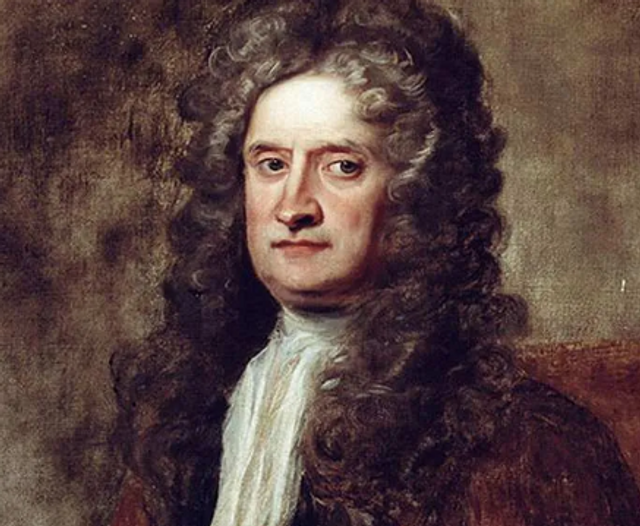
Isacc Newton
Sir Isaac Newton is widely regarded as one of the most influential scientists in history. He is best known for his groundbreaking work on the laws of motion, the theory of gravitation, and the invention of calculus. But his contributions to science and mathematics go far beyond these achievements. In this blog post, we will explore the life and legacy of Isaac Newton, the man who changed the course of human understanding.
Early Life and Education
Isaac Newton was born in Woolsthorpe, England, on December 25, 1642. His father had died three months before he was born, leaving his mother to raise him and his two sisters. At the age of 12, Newton was sent to the King's School in Grantham, where he excelled in his studies. He showed a particular aptitude for mathematics and science, which eventually led to his admission to Trinity College, Cambridge, in 1661.
At Cambridge, Newton was introduced to the work of scientists and mathematicians such as Galileo, Descartes, and Kepler. He studied their theories and experiments, and began to develop his own ideas about the laws of motion and gravity. He graduated in 1665, but the university was forced to close due to an outbreak of the plague, so Newton returned to his family's estate in Woolsthorpe.
During his time in Woolsthorpe, Newton began to conduct experiments and make observations that would later form the basis of his theories on gravity and motion. He discovered that light could be split into its component colors, and began to develop his theories of calculus.
Scientific Achievements
In 1667, Newton returned to Cambridge and was appointed as a professor of mathematics. Over the next few years, he published a series of papers on the laws of motion and gravity, which laid the foundation for his most famous work, the Principia Mathematica.
In the Principia, published in 1687, Newton presented his three laws of motion and his theory of universal gravitation. He explained how gravity works to keep the planets in their orbits, and showed how it could be used to calculate the motions of the planets and the moons.
Newton's work on optics was also groundbreaking. He showed that white light is made up of a spectrum of colors, and invented the reflecting telescope, which was much more powerful than the refracting telescopes of his time.
Legacy and Impact
Isaac Newton's work had a profound impact on science and mathematics, and his ideas are still used today. His laws of motion are the foundation of classical mechanics, and his theory of gravity is the basis for modern physics. His work on optics and the reflecting telescope also paved the way for modern astronomy.
But Newton's impact was not limited to science and mathematics. His work had a profound influence on philosophy and culture as well. His mechanistic view of the universe, in which the world is governed by laws that can be discovered through reason and observation, helped to create the modern scientific worldview. His work also had an impact on literature and the arts, inspiring writers and artists with its vision of a universe governed by natural laws.
Conclusion
Isaac Newton was a brilliant scientist, mathematician, and inventor who made significant contributions to the fields of physics, mathematics, and optics. His work on the laws of motion, the theory of gravitation, and the invention of calculus changed the course of human understanding. His ideas have influenced science, philosophy, and culture for over three centuries, and his legacy continues to inspire new generations of scientists and thinkers.
Learn More Resource Links: